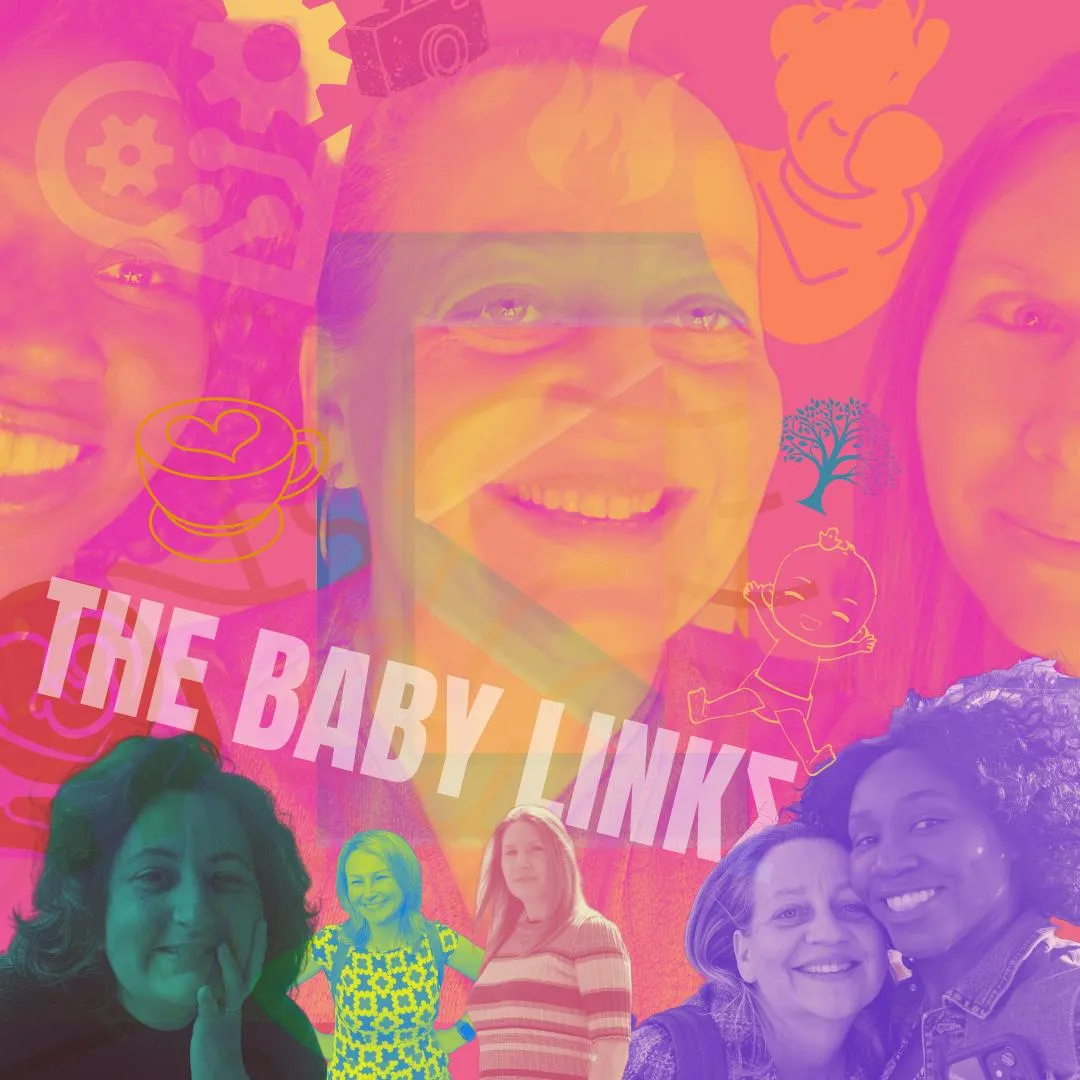WELCOME TO OUR BLOG
THE BABY LINKS SOCIAL CLUB BLOG SECTION

Fixing Trust in Maternity Care: A Heartfelt Approach

Fixing Trust Issues in Maternity Care: A Heartfelt Approach
Today, let’s talk about a topic that's just as important as knowing how to dress a newborn under 90 seconds: trust!
Imagine you’re in a delivery room. The lights are dimmed, the atmosphere is charged with anticipation, and suddenly, the birthing person looks at you with wide eyes and says, “Are you sure I can do this?” Here’s where trust comes into play.
Why Trust Matters?
Trust is timeless and incredibly vital
Think about it: you trust your kids to stay away from strangers offering candy. You rely on clients to follow your advice. And those you care for trust that you’ll be their rock during tough moments.
Trust is essential in all social interactions. We naturally want to trust others, just as we hope to be trusted ourselves. That’s part of the human experience!
Without trust, things can get tricky
Unfortunately, the dark side of trust is that it's hard to earn, yet it can vanish in an instant.
A troubling issue, known as obstetric violence—where maternity service users face emotional or physical abuse or disrespect from caregivers—is becoming more prevalent globally.
In fact, a recent study in Australia found that 1 in 10 women felt violated or dehumanized during childbirth, which is truly heartbreaking.
It goes to the extent women themselves start to tolerate and normalise maltreatment both within and outside of hospitals, a study revealed.
What will you do after receiving a bad treatment? Personally, I retreat and never show up afterwards. Never!
And I’m not alone in this feeling! More and more women are choosing to freebirth or hire doulas to regain control over their care, according to stories from my fellow midwifery colleagues.
It’s alarming—the women we want to help are feeling so lost that they’re distancing themselves from us, and that’s a significant crisis.
When Helpers Hurt, Trust Wanes
Women are often conditioned to trust the expertise of their caregivers. Yet, when instances of obstetric violence occur, it can shatter their sense of autonomy and leave them feeling powerless.
Obstetric violence has been linked to birth trauma, postpartum depression, post-traumatic stress disorder, negative effects on sexuality, increased risks of complications during childbirth, and mistrust of the health system leading to unwillingness to seek medical treatment.
An anonymous mother expressed her conflicting feelings on ABC News: “It was the happiest moment of my life and at the same time, a terrible moment…. Because of what they did to me.” It’s a sentiment many can relate to.
Knowing suicide is the leading cause of perinatal death in many countries. It's worrisome to acknowledge the helpers could be contributing to these numbers unconsciously.
As a birthing professional, you might sometimes carry biases, often without even realizing it. Amid an emergency, many women have their autonomy extorted.
“There's a lot of gaslighting that goes on when anybody has anything to say other than: it was wonderful. But the bottom line is mistreatment is not necessary for safety.” says Christen Pascucci, founder of Birth Monopoly and advocate for human rights in childbirth.
Being a caregiver gives you no power to override patients or clients rights. Broken trust arises from these moments.
In the end, trust leads to healthy moms and babies. Which is all we want.
How to Cultivate Trust?
So, how can we nurture this essential trust? Let’s break it down with some humor because laughter is often the best medicine!
1. Be Authentic
First things first: just be yourself! No need for a superhero cape (unless you want to!). Share your stories—both the wins and the funny blunders (like that time you confused hand sanitizer for baby lotion). Your clients will appreciate the realness; it reminds them that you’re human, too!
2. Listen Like Your Life Depends on It
Listening is an art, and as midwives, we need to master it! When your client shares her fears or asks if that pizza slice is okay to eat during contractions, give her your full attention. Nod (but not so much that you look like a bobblehead) and validate her feelings. It’s amazing how much this can strengthen trust.
Listen to understand!

3. Communicate Clearly
Clear communication is key! Use simple language—save the medical jargon for another time. And don’t hesitate to infuse a bit of humor! When discussing stages of labor, you might say, “Imagine it’s a marathon: there will be sweat, tears, and some questionable snack choices!”
Be transparent and honest when sharing a piece of advice or information.
4. Be Consistent
Showing up consistently builds trust faster than a toddler can say “No!” Arrive on time for appointments (or at least give a call if you’re running late!), follow through on promises, and stay calm—especially when chaos reigns! Your clients will feel secure knowing they can rely on you.
5. Empower Your Clients
Encourage your clients to be proactive about their health journeys. When they feel empowered, they’re more likely to trust your guidance. Remind them that they’re the stars of the show—you’re just the supportive sidekick with the cool tools!

6. Accept You Can’t Always Be the Hero
It’s important to recognize that you won’t be able to save the day every time. It’s perfectly okay!
Keep people's best interests at heart and allow the universe to do the rest. Trace out the existing biases you have on childbirth and work towards shifting those biases.
This way they know it's not just you, but about them too.
The Ripple Effect of Trust
When trust blooms between midwives and mothers, it creates a positive outcome that extends far beyond the delivery room. A supported mother is likely to share that confidence with others, and together, we can create a community rooted in trust, care, and love.
Closing Words
So here’s to all the young midwives out there: embrace your role as trusted caregivers! With authenticity, empathy, clear communication, consistency, and empowerment in your toolkit, you’ll not only thrive in your careers but also make a lasting impact on the lives of the mothers and babies you serve.
Now go forth and spread that trust like confetti at a baby shower!
Sincerely
Thcouala Therese
::::::::::::::::::
Link to the Becoming that Midwife newsletter

Bio
Tchouala Therese is a registered midwife practising in Cameroon with two years clinical and community experiences. Author of “Becoming that Midwife,” a LinkedIn newsletter and passionate content writer. Therese shares her journey becoming a midwife in a low and middle income country as well as updates in the field of midwifery. Spiking conversations around the profession. Also, she enjoys educating the general population on maternal and child health. Putting a particular focus on the menstrual cycle.A fruitful investment she made in the past two years is volunteering.
As the leader of countable organisations, like project lead at Girl Up (a UN Foundation), program coordinator for School Against Cancer, the Cameroon Red Cross among others.
Therese has an objective to become a midwife educator in three years.

SUBSCRIBE TO BE THE FIRST ONE TO HEAR ABOUT OUR STORIES
Read the next chapter first, learn about what we learned this week and who we talked to.
We would love to hear your stories and answer your questions. Please let us know how we can help
© Copyright 2025 The Baby Links. Terms and Conditions and Privacy Policy
